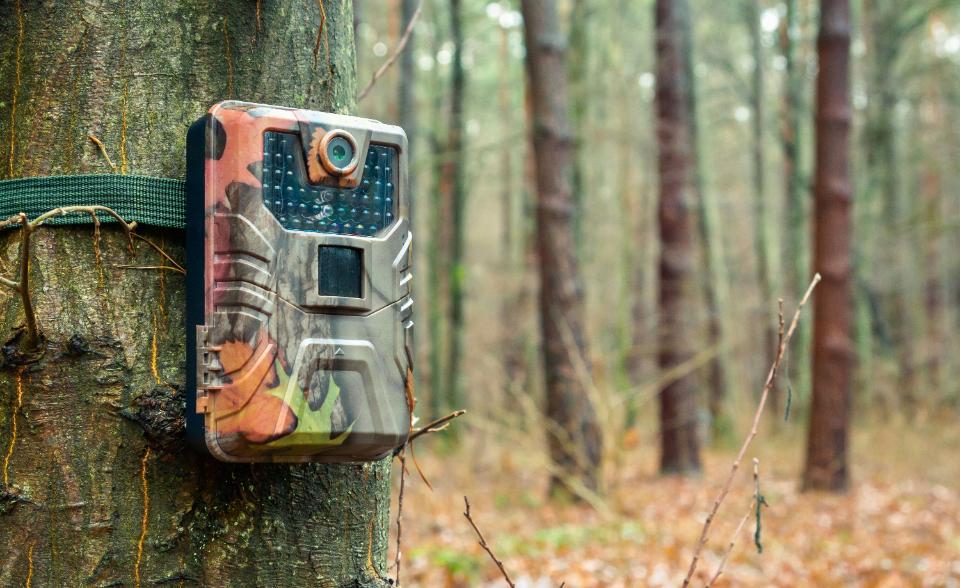-
Date:
From 02 Jun 2025 until 06 Jun 2025
-
Deadline for Applications:
02 May 2025
-
Location:
Faculdade de Ciências da Universidade de Lisboa and Herdade da Ribeira Abaixo (HRA)
-
Duration:
36 hours (contact hours)
-
Schedule:
Day 1 (CIÊNCIAS): one morning or afternoon (2h); Days 2-5 (HRA): 8h-18h (with 1.5 h break)
-
Lecturer or Responsible:
Maria Dias & Inês do Rosário (CE3C-CES, CIÊNCIAS) (lecturers and organisers), José Pedro Granadeiro (CE3C-BEC, CIÊNCIAS), Ana Leal (CE3C-TMB), Rui Rebelo (CE3C-FIB), Miguel Rosalino (CE3C-CES), David Santos (lecturers)
-
Department Responsible:
Departamento de Biologia Animal, Faculdade de Ciências da Universidade de Lisboa
-
Nº (min - max) Students:
8-15
This course was cancelled. Thank you for your interest.

Objectives
Collecting data in the field is nowadays greatly facilitated by the advance of technology such as the development of devices that can automatically record and store environmental information, or miniaturized GPSs that can follow the movements of animals. In this course we will provide advanced hands-on training on some of the most used technological tools in field biology: movement tracking devices (e.g. GPS loggers, geolocators), environmental data loggers (e.g. to record temperature or water depth), acoustic devices (e.g. Audiomoths), camera traps, identification apps and drones. At the end of the course the participants will 1) understand the usefulness of each tool in the context of field biology; 2) know the basic principles of the use of these tools in fieldwork; 3) be able to download the data to a computer. Data analysis will not be addressed in this course, although a list of available software to deal with data handling and analysis for each tool will be provided.
Participants have to be present at 85% of the contact hours (this means that they can miss one half-day), and actively participate in all activities.
This course can give credits to PhD programmes at CIÊNCIAS or of programmes with partnership from CIÊNCIAS and other institutions with 6h-7h of contact hours per ECT, as a function of specific requirements. For these students additionally to the exercises done during the week the delivery of a written report done after the course is mandatory. For programmes with less hours of contact per ECT (6h/ECT, getting 6 ECTs from the course) students need to do an additional assignment (summary report). If needed 1 or 2 additional hours of contact may be added. Such report(s) are also advised for other students requesting accreditation of the course in their institutions.
Minimal formation of students: some experience in fieldwork is desirable; basic knowledge on Excel.
Directed to: MSc or PhD students in Biology, Environmental Sciences, Ecology, Agricultural and Forestry or related areas, postdocs and professionals working in related topics.
General Plan
Provisional plan
Day 1 (CIÊNCIAS) – 2h (morning or afternoon, TBD)
- Introduction
- Brief presentations of each tool
- Plans for fieldwork
Days 2-5 (HRA) 34h (ca. 8.5h per day)
Days 2 -4 will be organized in modules. Each module will consist of a practical session where the trainees will have the opportunity to use the tools in a real-case example, collect data, learn how to transfer the data to the computer and, when applicable, visualize the data with a dedicated software. End of day 4 and day 5 the participants will have the opportunity to do a practical work using one of the tools (in groups).
Participants should arrive the night before of the start and leave by the end of day 5/early morning the following day.
Day 2
8h-10h: Module 1: Tracking devices: deployment
10h-12h: Module 2: Data loggers: placement in the field
Lunch break
14h-16h: Module 3: Camera traps: placement in the field
16h-18h: Module 4: Acoustic devices: placement in the field
Day 3
8h-10h: Module 5: ID apps
10h-12h: Module 6: Drones: operating
Lunch break
14h-16h: Module 7: Drones: data download
16h-18h: Module 8: Tracking devices: data visualization*
Day 4
6h-8h: Module 8: Collection of devices (data loggers, acoustic devices and camera traps)
8h-9h: Module 9: Data loggers: data visualization*
Coffee break
10h-11h: Module 10: Camara traps: data visualization*
11h-12h: Module 11: Acoustic devices: data visualization*
Lunch break
14h-16h: Group work: Device deployment
Day 5
8h-14h: Group work: Device collection and data download
14h-16h: Final session
Funding
Students fees
Fee
Free for 1st year PhD students in Doctoral programmes at CIÊNCIAS (e.g. Biology), Biodiversity, Genetics and Evolution (BIODIV ULisboa; UPorto), Biology and Ecology of Global Changes (BEAG ULisboa, UAveiro) and Sustainability Science (ULisboa, several institutions), when the course counts credits for their formation, in which case the delivery of a final report done after the course is mandatory; the course is also free for more advanced PhD students of the BIODIV programme (ULisboa or UPorto); 50 € for more advanced PhD students of CE3C; 80 € for PhD students of the PEERS network (CFE); 125 € for CIÊNCIAS Master students and unemployed; 180 € for BTI, BI and other PhD students; 250 € for Professional and postdocs.
When the maximum number of students is reached, 8 vacancies will be available for non-paying 1st year PhD students mentioned above, being, by order of preference students from: 1) CE3C; 2) BIODIV (not from CE3C); 3) CIÊNCIAS (not from CE3C); 4) Sustainability Science (not from CE3C or CIÊNCIAS); 5) BEAG (not from CE3C or CIÊNCIAS).

